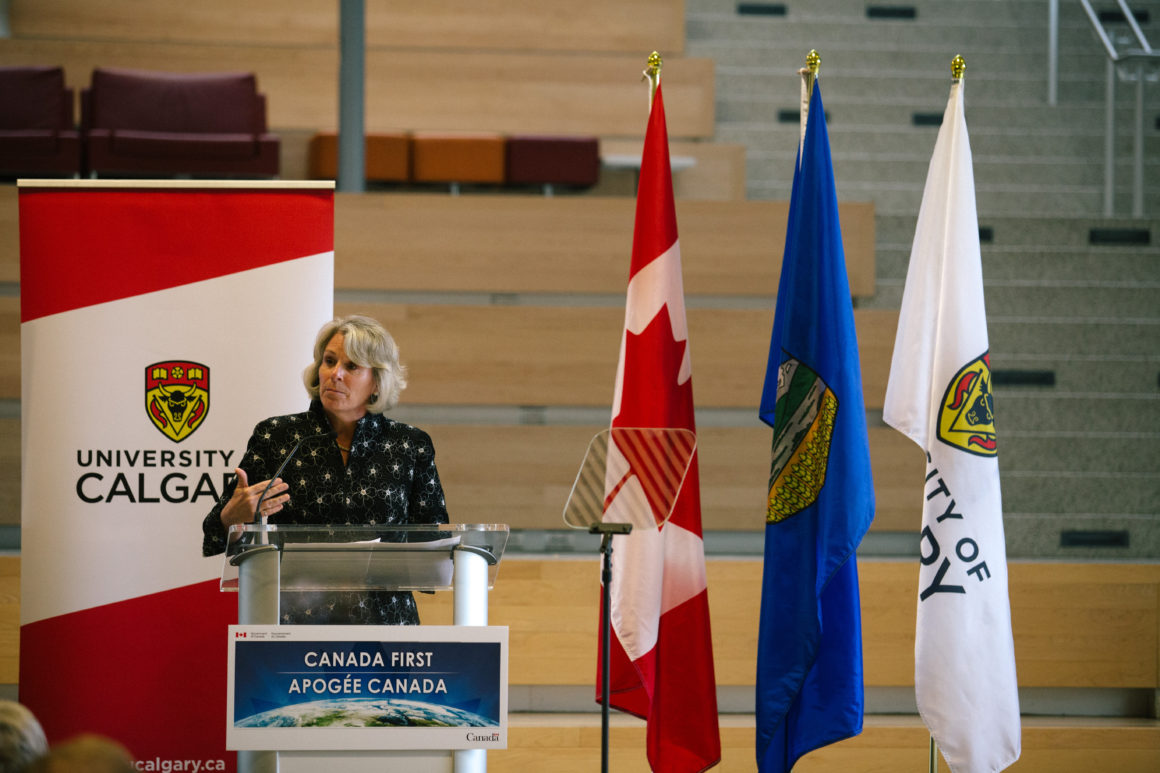
University of Calgary receives $75 million research grant
By Scott Strasser, September 6 2016 —
The Canadian federal government will provide the University of Calgary with $75 million over seven years to go towards energy-related research, the U of C officially announced September 6.
The funding marks the largest energy sector-related research grant in the U of C’s history.
“Certainly in the energy space, this is far and wide the biggest investment,” said U of C president Elizabeth Cannon. “We did of course have the provincial government committing $100 million to our medical school, which predominantly is for brain, mental health and chronic disease [research].”
Liberal MP and minister of veteran affairs Kent Hehr officially announced the research grant on behalf of the Canadian government at the Energy, Environment, Experiential Learning building on Tuesday at 4:00 p.m.
“Our government is committed to using science in evidence-based decision-making,” Hehr told the crowd of roughly 100 attendees. “We want to make the most of Canada’s scientific and research strengths, to be the best in areas we really have potential to dominate on the world stage.”
The funding is part of a broader $900-million research announcement made by the federal government. The money comes from the Canada First Research Excellence Fund’s second round of funding. CFREF goes
towards research on energy extraction practices and reducing environmental impacts of oil extraction.
Schulich School of Engineering professor and Canada Excellence Research Chairholder in Materials Engineering for Unconventional Oil Reservoirs Steven Bryant is the scientific leader of the U of C’s research strategy, dubbed the Global Research Initiative in Sustainable Low Carbon Unconventional Resources.
“What this is going to allow us to do is have a lot more collaboration with different parts of science and different parts of engineering,” Bryant said. “We’re already doing that, but this takes it to a level beyond and to a larger set of applications. Now we have the opportunity to work with an even broader set of folks, both within and outside the university, to address a wider set of problems.”
According to the announcement, the U of C’s strategy will incorporate roughly 270 faculty members, students and scholars from various disciplines.
The strategy will also involve collaboration with the University of Alberta, which also received a $75-million energy-related research grant from CFREF, as well as the Southern Alberta Institute of Technology.
“$150 million in federal funding coming to the province — I think it’s fantastic news in a difficult time,” Cannon said. “Our proposals are very synergistic. We’ve had collaborations with the U of A for many years.”
In his speech at the announcement, Bryant said the transition to a low-carbon future is the biggest challenge humanity faces.
“Petroleum demand is going to continue several decades into this transition and ever more of that petroleum is going to have to come from unconventional resources,” he said. “Meanwhile, we have to deal with CO2 and the legacy of running a global economy on fossil fuels.”
According to Cannon, the U of C’s program also includes international partnerships with institutions in China, Mexico and Israel.
“One of the things all those countries have in common is that each one has significant unconventional hydrocarbon resource assets,” Cannon said. “For example, in China they have a lot of shale gas and they’re trying to move away from coal to gas as part of their global commitment surrounding emissions.”
“But it’s challenging from a geological point of view to extract those resources, so we’ve developed a research centre in Beijing with partnerships with some of the Chinese universities to bring our capacity together and generate new ideas,” she said.
More than 50 universities in Canada applied for CFREF grants.
